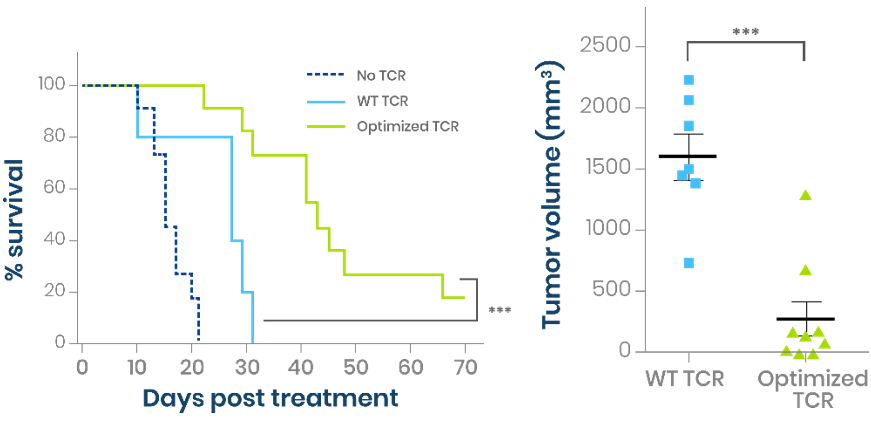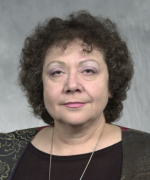TCR gene therapies show promise in cancer treatment but are hindered by the low natural avidity of TCRs against tumor-associated antigens. MAGE-A1 is a germline antigen expressed in many tumor types, making it a compelling target for TCR-based immunotherapy. We optimized a MAGE-A1-specific TCR through somatic hypermutation (SHM) to enable improved recognition of cancer cells. The resulting TCR demonstrates enhanced in vitro and in vivo activity, supporting its use in cell therapies for solid tumors.
- Cell therapy for MAGE-A1-positive cancers such as lung, breast, GI and urogenital cancers
- Superior anti-tumor activity
- Broad applicability across multiple solid cancer types
Optimized TCR sequence.
Validated in mouse melanoma model showing reduced tumor growth, improved survival, and durable anti-tumor responses.

SHM-optimized MAGE-A1 TCR improves tumor clearance and extends the survival of melanoma mice
Bassan, D. et al. ‘Optimizing T-cell receptor avidity with somatic hypermutation’, Int.J.Cancer. 2019 Nov 15;145(10):2816-2826. doi: 10.1002/ijc.32612. (2019)


